|
|
 |
• Содержание выпуска •
• Methods for Optimal Control and Control Theory •
• Software and Hardware for Distributed Systems and Supercomputers •
• Mathematical Foundations of Programming •
• Artificial Intelligence, Intelligence Systems, Neural Networks •
• Mathematical Modelling •
Methods for Optimal Control and Control Theory
Responsible for the Section: doctor of technical Sciences Vladimir Gurman,
doctor of physico-mathematical Sciences Yury Sachkov.
On the left: assigned number of the paper, submission date, the number
of A5 pages contained in the paper,
and the reference to the full-text PDF
/r1/pdf.jpg) . .
|
Article # 1_2016
11 p.
/r1/pdf.jpg) PDF
PDF |
submitted on 26th
Dec 2015 displayed on
website on 21th Jan
2016
Gurman V.I., Rasina I.V.
Turnpike
Solutions in the Problem of Excitation Transfer Along a Spin Chain
It is considered the problem of
excitation transfer along a spin chain related to the applied
problem of quantum computations. The model of a quantum system of
interacting spins based on the Shr¨odinger equation with unbounded
linear control is transformed to an equivalent derived system (known
from the degenerate problems theory), and then approximately to
derived systems of higher stages with reducing order. Their
investigation performed analytically or via simple computations
leads at least to approximate solutions
and lower estimates of the transfer time, which can be used in
subsequent improving procedures.
Key words:
quantum system, spin chain, Shr¨odinger equation,
optimal control, derived system, degenerate problem, impulse control,
turnpike solution, global improvement method. |
|
article citation |
http://psta.psiras.ru/read/psta2016_1_3-13.pdf |
|
DOI |
https://doi.org/10.25209/2079-3316-2016-7-1-3-13 |
|
Article # 4_2016
13 p.
/r1/pdf.jpg) PDF
PDF |
submitted on
13th
Dec 2015 displayed on
website on 29th Jan
2016 Blinov A.O., Dmitriev M.D.
The sensitivity of the solution of some optimization problems with
perturbation
There are consider optimization problem with
perturbations. It represents the problems of searching the extremum
of functions of many variables in the application of methods of
linear convolution and an ideal point where some of the weighting
coefficients depend on a small parameter. On the basis of the
asymptotic analysis of the problem there is describes the
sensitivity of the solution to change a small parameter that allows
to construct the solution correction. (in Russian).
Key words: linear convolution, ideal point, a
small parameter |
|
article citation |
http://psta.psiras.ru/read/psta2016_1_47-59.pdf |
|
DOI |
https://doi.org/10.25209/2079-3316-2016-7-1-47-59 |
|
Article # 10_2016
16 p.
/r1/pdf.jpg) PDF
PDF |
submitted on 22th
Feb 2016 displayed on
website on
15th
March
2016
Gurman V.I., Rasina I.V.
Global Control Improvement Method for Non-homogeneous Discrete
Systems
The class of non-homogeneous discrete systems is
considered. These systems are prevalent in practice and can be
obtained from discretization of continuous systems when optimization
problems are solving using iterative methods. For this class of
systems Krotov type sufficient optimality conditions are formulated
in two different forms. The prototype of Krotov global improvement
method is constructed. An illustrative example is presented. (In
Russian).
Key words: non-homogeneous discrete systems,
global improvement method, optimal control. |
|
article citation |
http://psta.psiras.ru/read/psta2016_1_171-186.pdf |
|
DOI |
https://doi.org/10.25209/2079-3316-2016-7-1-171-186 |
• Methods for Optimal Control and Control Theory •
• Software and Hardware for Distributed Systems and Supercomputers •
• Mathematical Foundations of Programming •
• Artificial Intelligence, Intelligence Systems, Neural Networks •
• Mathematical Modelling •
|


